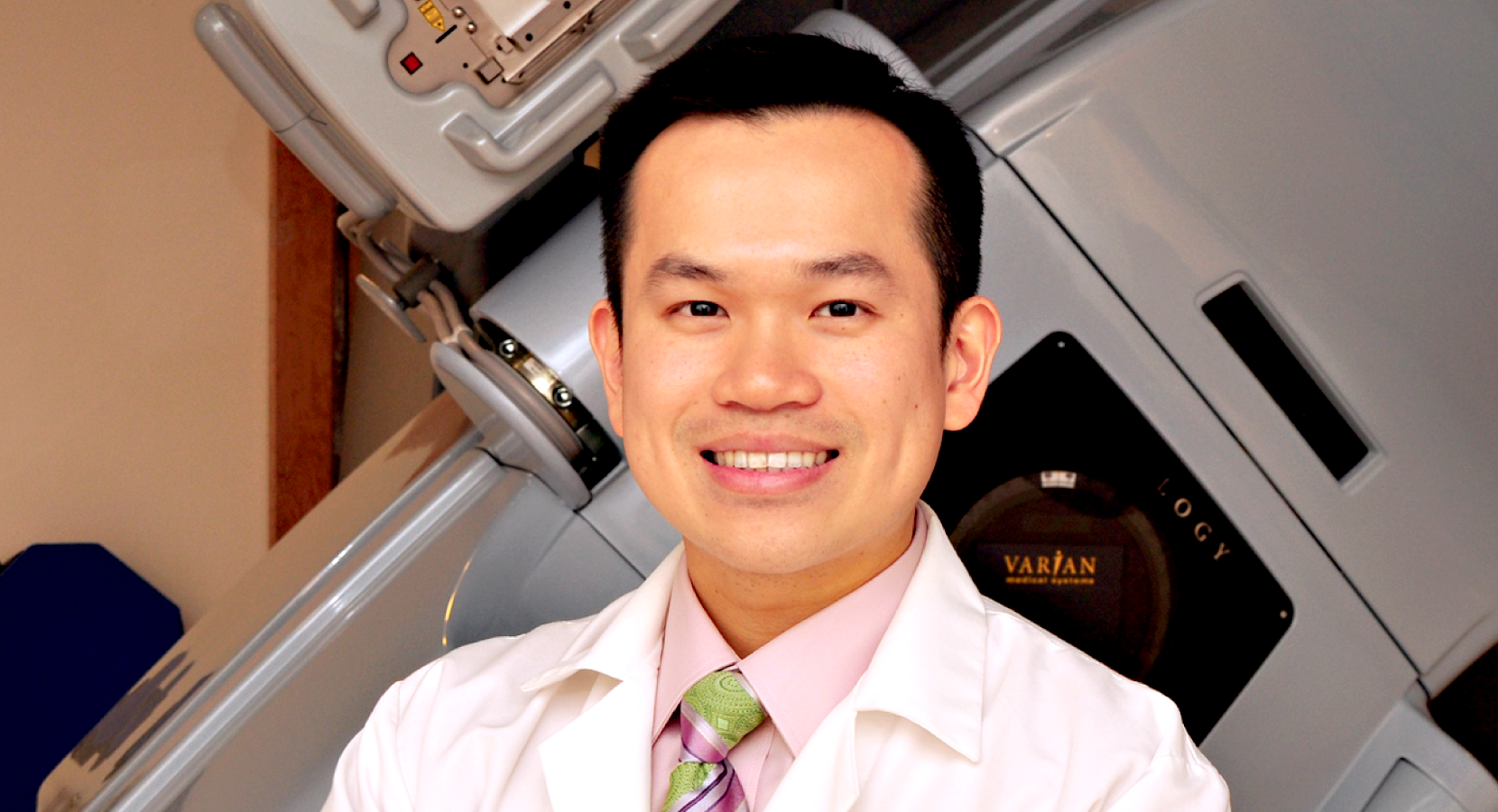
Powering Research to End Prostate Cancer
Six years ago, after having surgery for prostate cancer, a patient of Brigham and Women’s Hospital received difficult news. A biopsy showed the aggressive cancer had spread just beyond the prostate gland. Devastated and unsure what to do next, he sought the advice of radiation oncologist Paul Nguyen, MD.
“Dr. Nguyen looked me in the eyes and said, ‘I have reviewed your case and know exactly how to treat you,’” the patient recalls. “He recommended a combination of radiation and hormone therapy, and helped me and my family prepare to fight.”
Throughout this fight, the patient and his family have learned more about Nguyen, vice chair for clinical research in the Department of Radiation Oncology, and his work to develop new detection tools and targeted therapies.
“A couple months ago, Dr. Nguyen was among a select few to have research showcased at a major national oncology symposium—and that’s just one example of how well regarded he is,” says the patient, who made two anonymous gifts totaling $2.5 million toward Nguyen’s work. “For a man at my stage of prostate cancer, there is no definitive cure, and my family and I want to help change that. We’re investing in Dr. Nguyen’s efforts to better diagnose, monitor, and care for men with this miserable disease.”
Nguyen is grateful for these transformative gifts for his work, noting, “In the past three years, we have developed one of the largest database collections of high-risk prostate cancer tissues, and are making great progress toward improving and personalizing treatments for this disease.”
In addition to furthering research, the patient wishes to raise awareness for prostate cancer—the second most common cancer among older American men. Those who have a father or brother with the disease, or who are 50 and older, African American, or obese, are at increased risk. Since he and his brother have prostate cancer, he is concerned for his three sons.
“I don’t want our boys to ever face this problem,” he says. “Our family is optimistic that with the right funding and encouragement, bright people like Paul Nguyen will come up with better answers to fight this disease.”